The 30th jubilee edition of "Carpathian Europe" began in Karpacz on Tuesday, 7 September. On the first day of the conference Polish and foreign experts, politicians and scientists discussed the problems of Central and Eastern Europe, strengthening cooperation, new challenges in international politics, energy security and socio-economic changes. The organizer of the conference "Carpathian Europe" is the Chancellery of the Sejm, while the partner of the event is the Wacław Felczak Institute for Polish-Hungarian Cooperation. Agnieszka Kaczmarska, Head of the Chancellery of the Sejm, will participate in the event organized within the framework of the Economic Forum in Karpacz.
The official opening was made by Marek Kuchciński, initiator and leader of the Carpathian Europe project. - The 30th edition of the conference is associated with several notions: perseverance and great horizons. We are looking from the peaks of the Carpathians at the political and social environment, at our life and activity. We begin our conference with a panel in which young Europeans will speak about the future of Europe and Central Europe - said the former Speaker of the Sejm, currently the Chairman of the Foreign Affairs Committee.
Youth/young people (Central Europe) about the future of Europe
The opening panel discussed strengthening relations in the Central and Eastern European region, upholding Christian and family values.
Under-Secretary of State at the Hungarian Ministry of Human Resources Zsófia Rácz referred to the Krasiczyn Declaration adopted this summer, a joint statement by participants in the Polish-Hungarian Summer University in Krasiczyn, in which they declared to work together "at the political and civic level, for a free, secure, strong and just Europe". - The Krasiczyn Declaration was received with great interest and resonance. It is about remembering our roots in Europe. In Krasiczyn, we spoke about the strong ideological divisions in Europe, the conservative fraction and the liberal fraction on the other hand. We must remember our past, the fact that we - young people - have a great responsibility. We must question some things, but also propose positive solutions and have a vision for the future - she emphasized.
The point of view of the Polish government was presented by the Secretary of State in the Chancellery of the Prime Minister, the government plenipotentiary for youth policy Piotr Mazurek. - The subject of international cooperation of the representatives of the young generation, especially from Central and Eastern Europe, is one of the key topics we should discuss. The cooperation seems natural and necessary. I am convinced that it will be possible to extend it. From the point of view of the Polish government it is very important to support young people's involvement in public life, civic engagement, inclusion of young people in decision-making processes, and we do it on all possible levels. On the one hand, we established the Council for Dialogue with Young Generations - a new body, functioning for the first time in Polish history, where representatives of the President, Prime Minister, ministers enter into an ongoing dialogue through regular meetings, work with representatives of youth communities, NGOs - he said.
- For the vast majority of Belarusians, but especially for young people, the European Union and Europe as a whole remain symbols of prosperity. Poland and Lithuania have recently become the countries that mark this Europe," says Maxim Rust, a lecturer at the Belarusian Centre for Eastern European Studies and editor of the magazine "New Eastern Europe".
Stefan Tompson, a Polish-British journalist and columnist, said that he has never been more hopeful about the future of the region than he is now. - I have never been so optimistic about what has been achieved during the transformation, for example the 27 years of economic growth in Poland. We must use the opportunities we have - he stated.
Ferenc Almassy, a French-Hungarian journalist, also spoke in the discussion. - The Visegrad Group's opposition to uncontrollable migration was a wake-up call for many Europeans, who understood that we don't have to follow Western Europe in everything. We have our own choices and we can make them. We are as much Europeans as anyone else and have the same right to discuss the future of the continent. We should understand that the world is changing, Europe is in a very difficult position. Globalization has brought a lot of wealth to Europe, but also great cultural changes. We have lost a lot of our moral values, which were our foundation. The economy is not enough - emphasized the editor-in-chief of the Visegrad Post information portal.
Yegor Stadny, vice president of the Kyiv School of Economics, also spoke at Tuesday's first panel. - Looking at the West, we learn how the world could be better, but we often forget how to behave. We don't do well with teaching young people responsibility, explaining that they are the future. We don't see any activity or initiative on the part of the young people," said the Ukrainian speaker.
Sviatoslav Yurash, deputy of the Supreme Council of Ukraine, reminded of the joint initiatives such as the Lublin Triangle or Tri-City. He also mentioned the joint Polish-Ukrainian declaration made a few months ago, which assumes rapprochement between the countries. - We will take all possible steps that will lead to our rapprochement, we must define Europe together - he emphasized.
The discussion was moderated by Sebastien Meuwissen, a Polish-Belgian journalist, editor of the Visegrad Post and Stand For Christians news portals.
New challenges in international politics: US - Europe - Russia - China
In the second part of Tuesday's meeting, the heads of Polish and Hungarian diplomacy discussed, among other things, new challenges in international politics.
Péter Szijjártó, Minister of Foreign Affairs and Trade of Hungary, considered the biggest challenges to be hypocrisy, double standards, lack of real democratic debate in Europe. - We talk about challenges, about strengthening the EU. During these talks on the EU forum, those who present non-mainstream views are pushed out of the public debate. This is anti-democratic. As long as there is no space for a truly democratic and balanced debate, we will not be able to respond effectively to the challenges of the future - emphasised the Hungarian politician.
- The greatest challenge we face is to save the project of European integration. We joined a different Union. We understood the quintessence of integration to be the idea of a free market based on four pillars: freedom of movement for people, capital, workers and services. Today, these freedoms are not at their best. We are dealing with protectionist tendencies. What encouraged us to join the EU is now being restricted. The second issue has an institutional dimension. In the EU we were fascinated by the community of law, joint action based on treaties. EU institutions are expanding their competences in a non-treaty way. This is a dangerous phenomenon - emphasized the Minister of Foreign Affairs Zbigniew Rau.
The moderator of the discussion in the second panel was Przemysław Żurawski vel Grajewski, lecturer at the Diplomatic Academy of the Ministry of Foreign Affairs, permanent advisor to the Parliamentary Foreign Affairs Committee.
Trilateral Parliamentary Diplomacy
As part of this panel, representatives of the foreign affairs committees of the Trilateral countries discussed the call for a parliamentary dimension to the initiative.
- Our parliamentary cooperation should reflect a community of goals. Within the framework of the Tri-Morocco we have the opportunity to realize these goals. From the very beginning, this initiative is a living format, evolving from year to year - said Rozália-Ibolya Biró, Chairman of the Foreign Affairs Committee of the Romanian Chamber of Deputies.
Zsolt Németh, head of the Foreign Affairs Committee of the Hungarian National Assembly, said that the Tri-Cities is not an organization but "a young, very large, important political project. - It focuses on building a north-south infrastructure for cooperation in our part of the continent. Our most important mission is to rebuild Central Europe. We have the opportunities, the economic conditions. Governments are getting more and more involved in the Trilateral projects - he said.
Marek Kuchciński, chairman of the Parliamentary Foreign Affairs Committee, recalled that the possibilities of closer parliamentary cooperation were discussed many times during the pandemic. - 30 years of free nations in Central Europe is a time when enormous progress has been made. One of our fundamental goals is to provide conditions for the development of societies, families, and to ensure cooperation with neighbors. The parliamentary dimension should be present as one of the most important, our parliaments make decisions approving the policy of states or supporting our cooperation in international terms. In this way we build stability and a sense of security and friendliness - said the former Speaker of the Sejm.
Davor Ivo Stier, representing the Committee on Foreign Affairs of the Croatian Assembly, recalled that the Tri-Morocco Initiative was initiated at the level of presidents. - Now governments and parliaments are getting more and more involved in it. A huge step forward was the creation of a joint investment fund. We need more visibility, concrete actions, and we should get involved in informing our citizens about the Initiative. It is worth thinking about the cooperation of parliamentary committees that deal with transport, infrastructure and energy - he mentioned.
- Thanks to parliamentary cooperation we can coordinate actions and create a strategic approach to connectivity in Central European countries. It is important to involve parliaments in discussions, exchange of ideas of this initiative - said in turn the chairman of the Foreign Affairs Committee of the Saeima of Latvia Rihards Kols.
Žiga Turk, former Minister of Development and Economic and Social Reforms of Slovenia, referred to the idea of institutionalising cooperation between the countries of the region. - We propose to create a digitization budget in each country in order to create a mechanism for coordinating the joint use of the remaining funds. We have a common geography, history, culture, we have very compatible thoughts. We need to find specific projects around which we can use the synergy existing between us - he stressed.
The moderator of the discussion in the third panel was Grzegorz Górny, Chairman of the Board of the Tri-City Association.
Conference rebroadcast: YouTube
text: Sejm Information Center
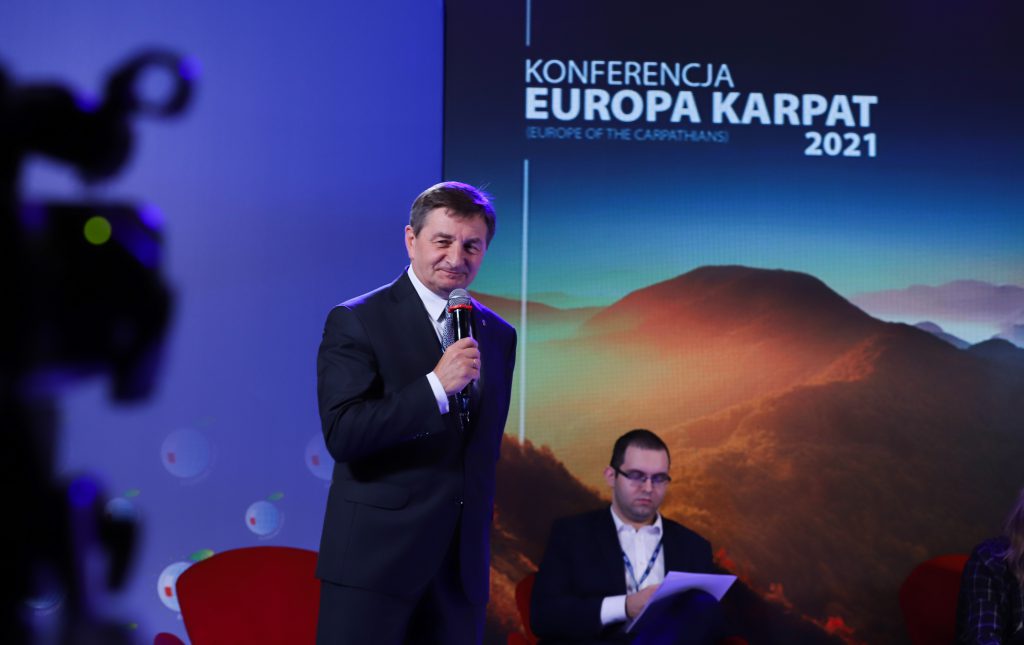
Photo by Marta Olejnik
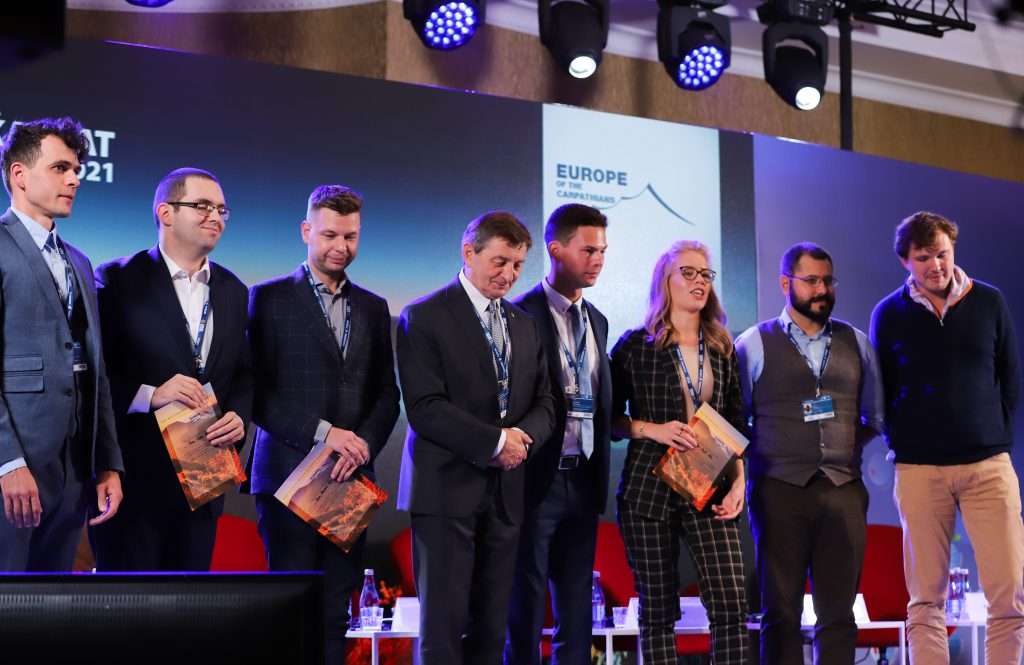
***
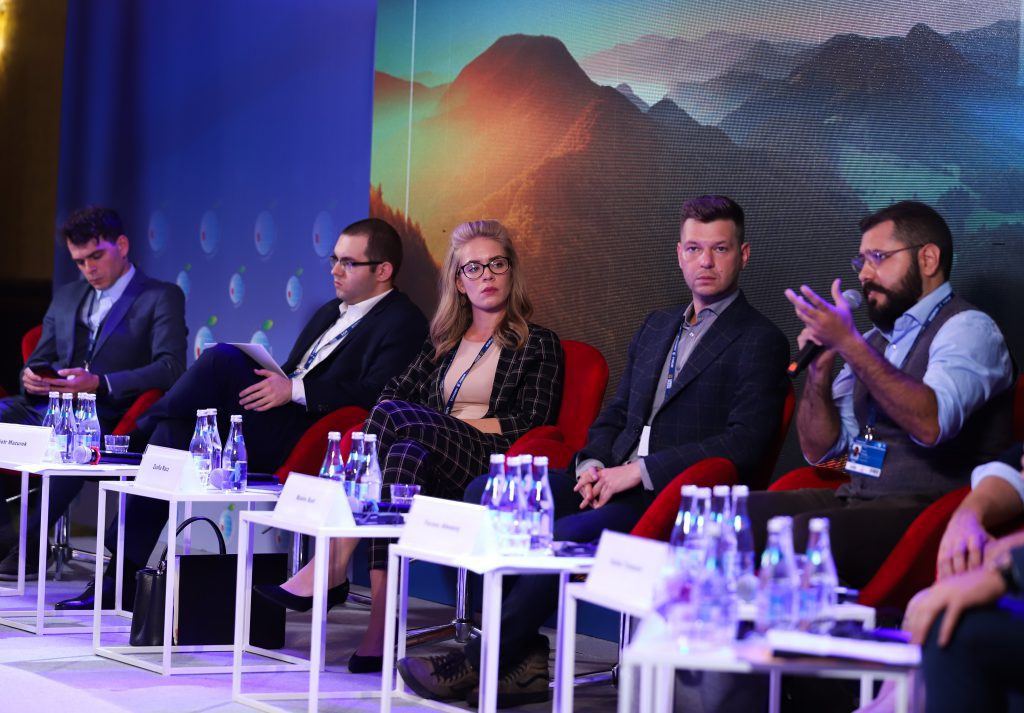
Karpacz: 30th edition of the Europe of the Carpathians Conference as part of the Economic Forum. Day 1
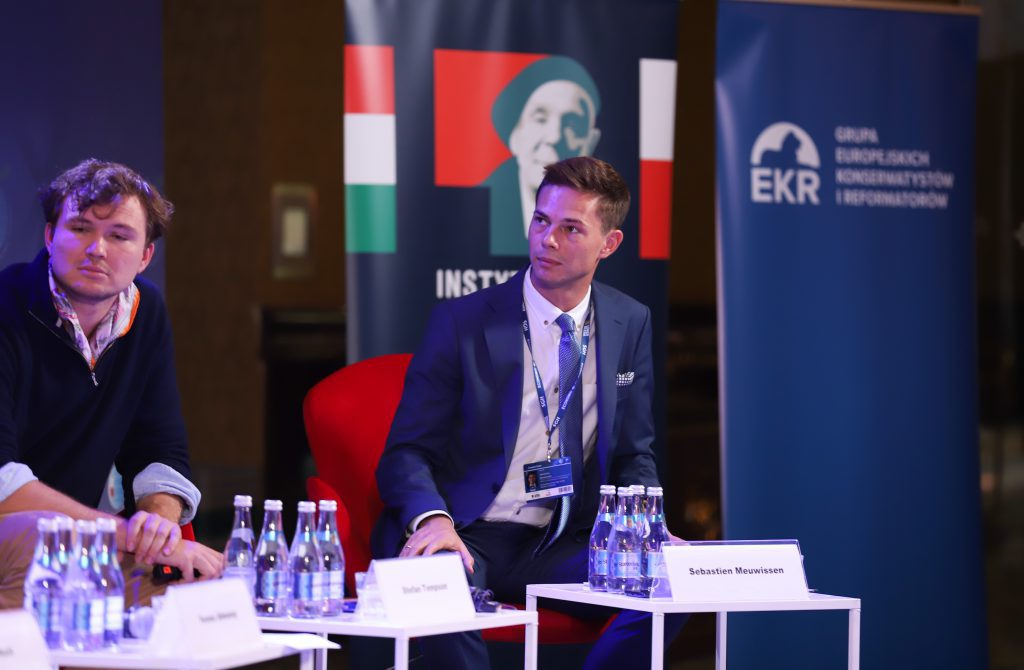
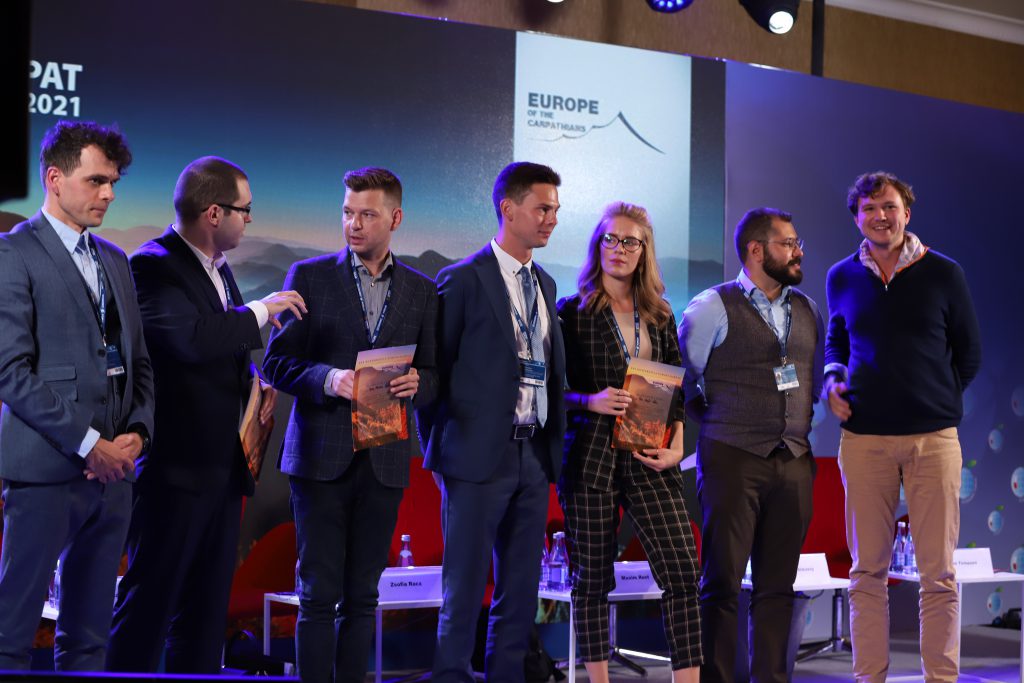
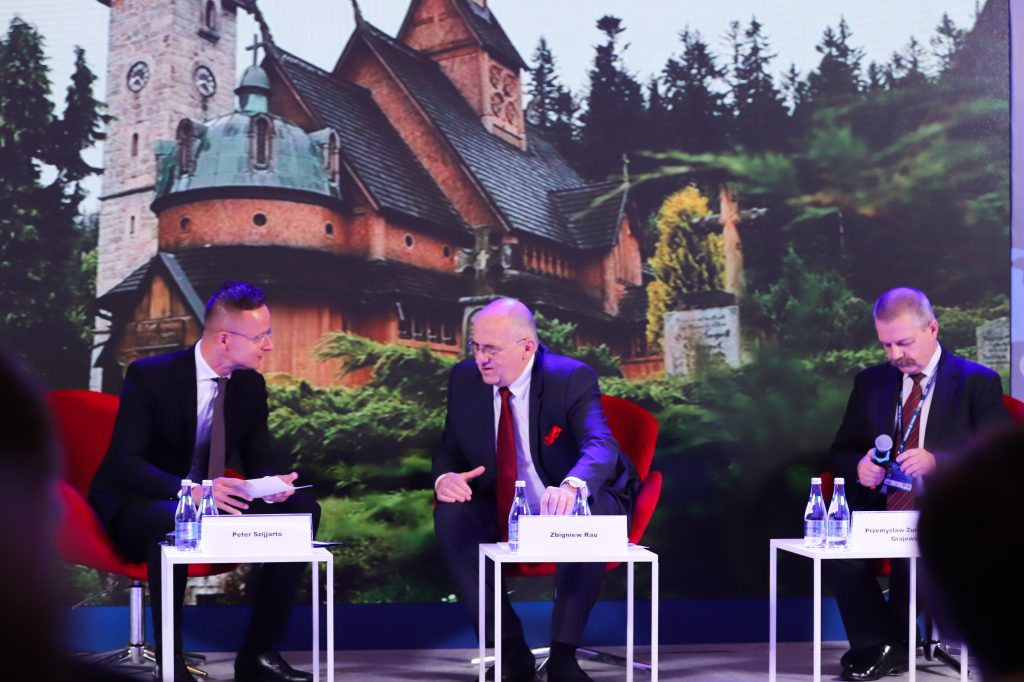
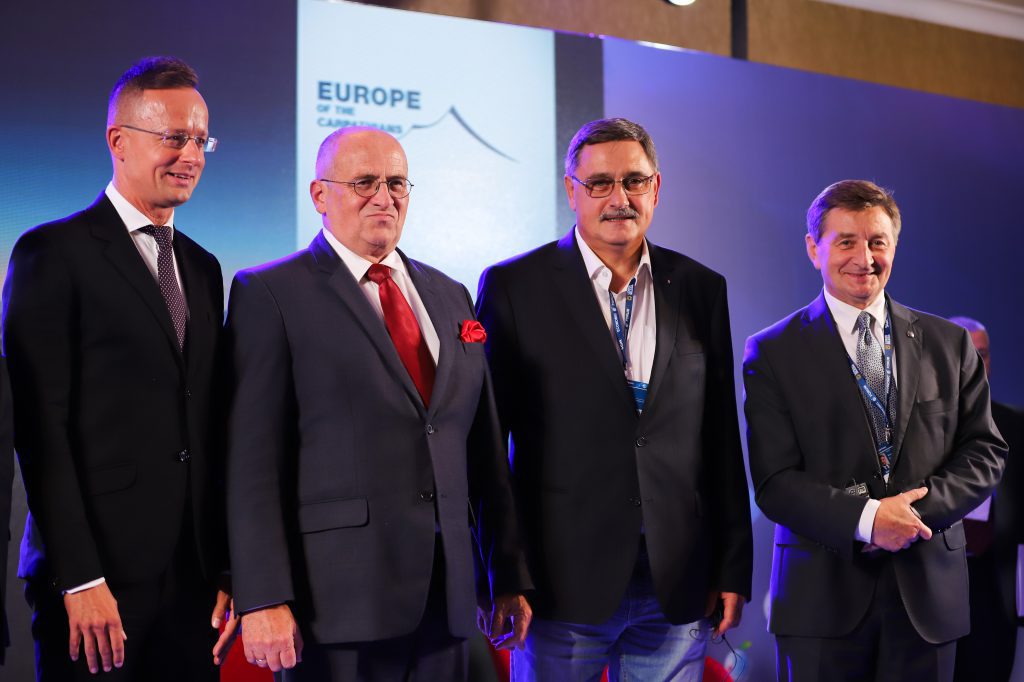
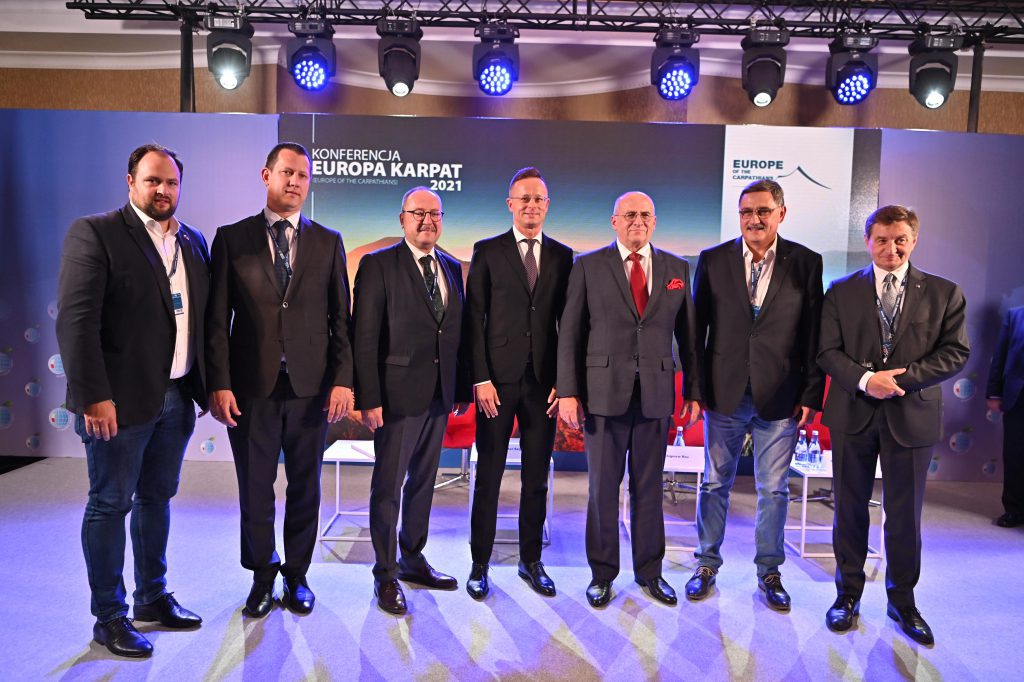
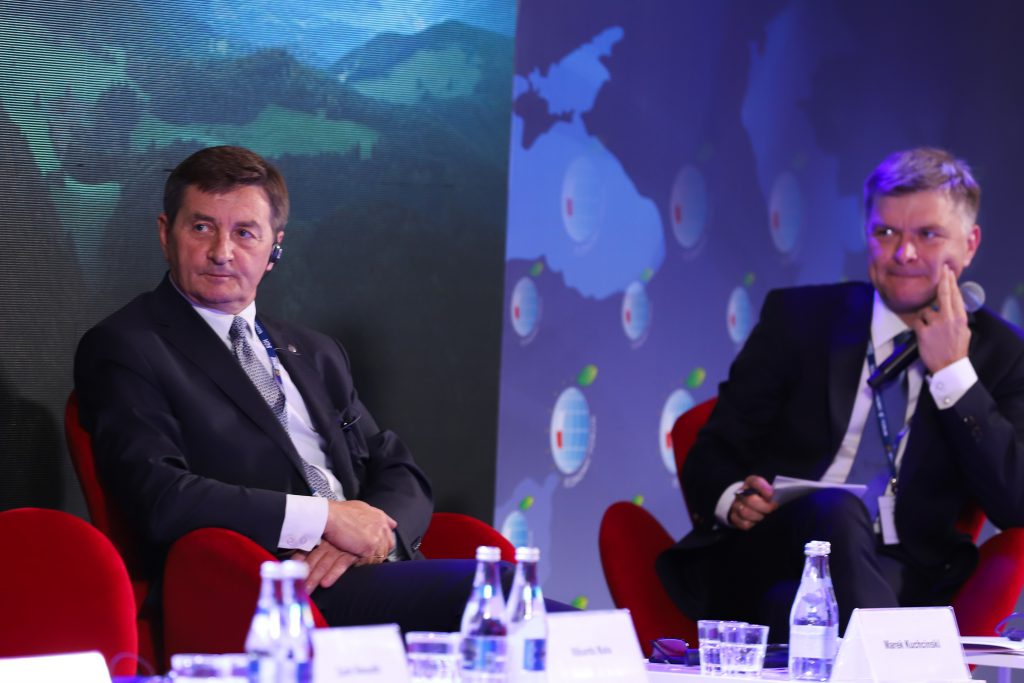
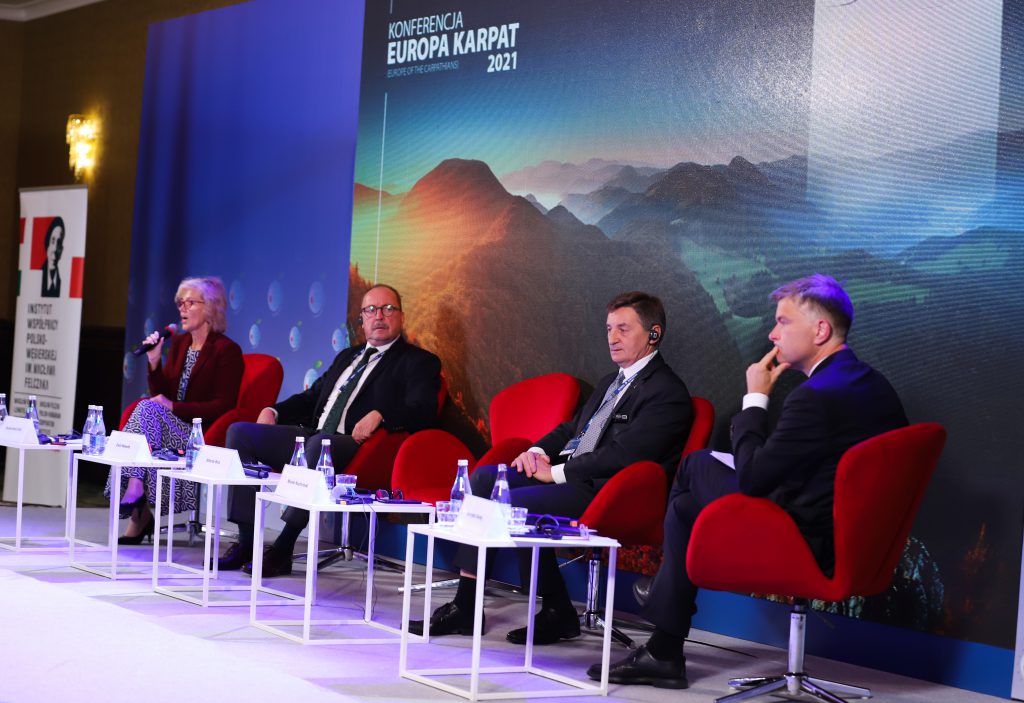
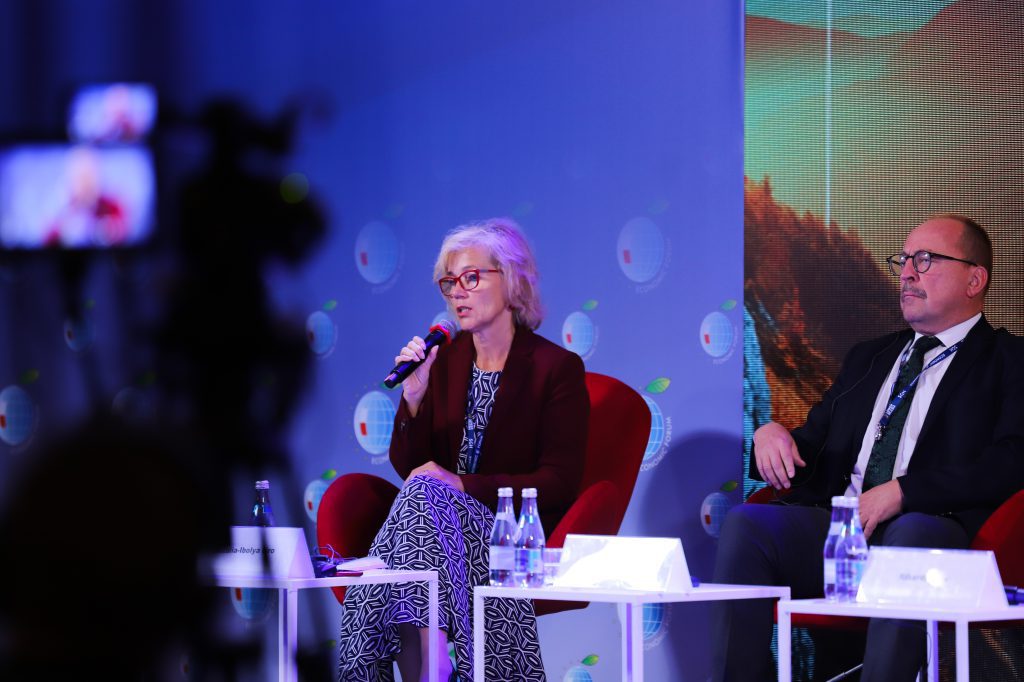
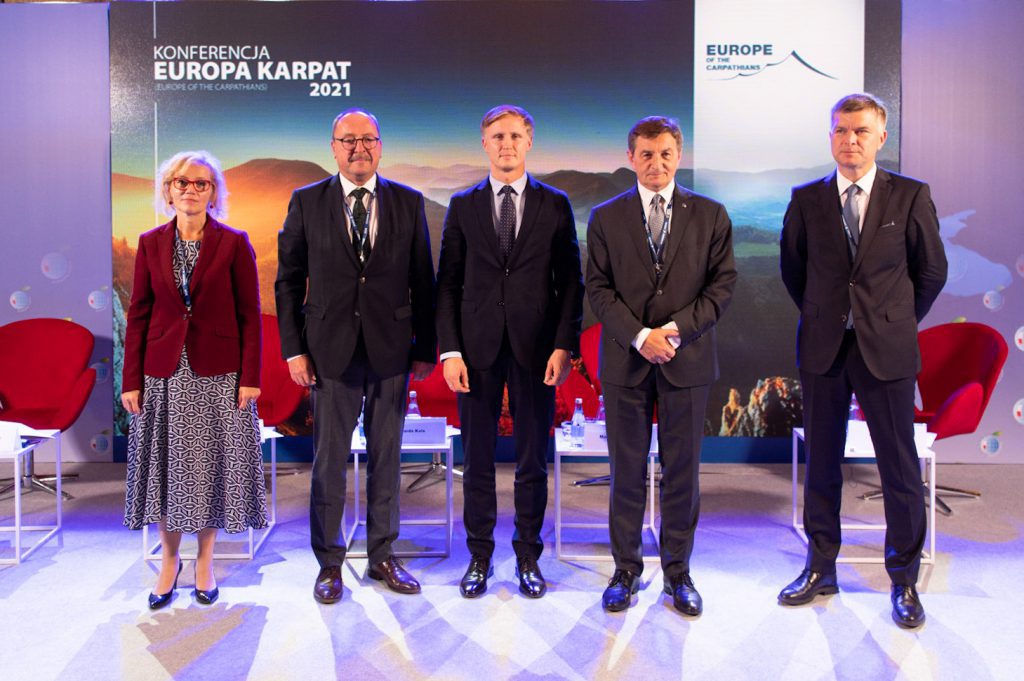
On Tuesday, 7 September, the 30th jubilee edition of the Europe of the Carpathians Conference began in Karpacz. On the first day of the conference, Polish and foreign experts, politicians and scientists discussed the problems of Central and Eastern Europe and strengthening cooperation, new challenges in international politics, energy security and socio-economic changes. The organiser of the Europe of the Carpathians Conference is the Chancellery of the Sejm, and the partner of the event is the Wacław Felczak Polish-Hungarian Cooperation Institute. Organised as part of the Economic Forum in Karpacz, the conference is attended by Agnieszka Kaczmarska, Head of the Chancellery of the Sejm.
The official opening was made by Marek Kuchciński, initiator and leader of the Europe of the Carpathians project. "The 30th edition of the conference entails several notions, perseverance and great horizons. We are looking from the peaks of the Carpathians at the political and social environment, at our life and activity. We start our conference with a panel in which young Europeans will speak about the future of Europe and Central Europe", said the former Speaker of the Sejm, currently the Chairperson of the Foreign Affairs Committee.
(Central Europe) young people/youth about the future of Europe
The opening panel discussed strengthening relations in Central and Eastern Europe and upholding Christian and family values.
Ms. Zsófia Rácz, Under-Secretary of State at the Hungarian Ministry for Human Resources, referred in her speech to the Krasiczyn Declaration, a joint declaration by participants in the Polish-Hungarian Summer University in Krasiczyn, adopted this summer, in which they declared that they would work together at political and civil level for a free, secure, strong and just Europe. "The Krasiczyn Declaration was received with great interest and much publicity. It is about remembering our roots in Europe. In Krasiczyn, we spoke of the strong ideological divisions in Europe, the conservative faction and, on the other hand, the liberal one. We must remember our past, that we young people have a great responsibility. We must question certain things, but also propose positive solutions and have a vision for the future," she stressed.
The point of view of the Polish Government was presented by Piotr Mazurek, Secretary of State in the Chancellery of the Prime Minister, Government Representative for Youth Policy. "The issue of international cooperation of the representatives of the young generation, in particular from Central and Eastern Europe, is one of the key topics we should discuss. The cooperation seems natural and necessary. I am convinced that it will be possible to extend it. From the point of view of the Polish Government, it is very important to support the involvement of young people in public life, civic involvement, the inclusion of young people in decision-making processes, and we are doing this at all possible levels. On the one hand, we have established the central-level Council for Dialogue with the Young Generation, a new body, functioning for the first time in Polish history, where representatives of the President, the Prime Minister and Ministers begin an ongoing dialogue through regular meetings, work with the representatives of youth communities and NGOs," he said.
"For the vast majority of the Belarusian society, but especially for the youth, the European Union and Europe as a whole remains a symbol of prosperity. Poland and Lithuania have recently become the countries that mark this Europe," said Maxim Rust, a lecturer at the Belarusian Centre for East European Studies and editor of the bimonthly New Eastern Europe.
Stefan Tompson, a Polish-British journalist and columnist, said that he had never been more hopeful about the future of the region than he was now. "I have never been so optimistic about what has been achieved during the transformation, e.g. these 27 years of economic growth in Poland. We must take advantage of the opportunities we have," he said.
Ferenc Almassy, a French-Hungarian journalist, also spoke in the discussion. "The Visegrad Group's opposition to uncontrollable migration was a wake-up call for many Europeans who understood that we did not have to follow Western Europe in everything. We have our own choices and we can make them. We are just as European as anyone else and have the same right to discuss the future of the continent. We should understand that the world is changing; Europe is in a very difficult position. Globalisation has brought much wealth to Europe, but it has also brought great cultural changes. We have lost a great deal of our moral values, which were our foundation. The economy is not enough," emphasised the editor-in-chief of the Visegrad Post news portal.
Yegor Stadny, Vice President of the Kyiv School of Economics, also spoke at Tuesday's first panel. "Looking at the West, we learn how the world could be better, but we often forget how to behave. We do not do well in teaching young people responsibility, explaining that they are the future. We do not see any activity or initiative on the part of young people," said the Ukrainian speaker.
Sviatoslav Yurash, a deputy of the Supreme Council of Ukraine, recalled joint initiatives such as the Lublin Triangle and the Three Seas Initiative. He also referred to the joint Polish-Ukrainian declaration made a few months ago, which assumed the rapprochement between the countries. "We will take all possible steps that will lead to our rapprochement; we must define Europe together," he stressed.
The discussion was moderated by Sebastien Meuwissen, a Polish-Belgian journalist and editor of the Visegrad Post and Stand For Christians news portals.
New challenges in international politics: USA - Europe - Russia - China
In the second part of Tuesday's meeting, the heads of Polish and Hungarian diplomacy discussed new challenges in international politics, among other things.
Péter Szijjártó, Hungarian Minister for Foreign Affairs and Trade, identified hypocrisy, double standards and the lack of genuine democratic debate in Europe as the biggest challenges. "We talk about challenges, about strengthening the EU. During these discussions in the Union, those who present views different from the mainstream are pushed out of the public debate. This is anti-democratic. As long as there is no space for a truly democratic and balanced debate, we will not be able to respond effectively to the challenges of the future," emphasised the Hungarian politician.
"The greatest challenge facing us is to save the project of European integration. We joined a different Union. We understood the quintessence of integration to be the idea of a free market based on four pillars, freedom of movement for people, capital, workers and services. Today, these freedoms are not at their best. There are protectionist tendencies. What encouraged us to join the EU is now being reduced. The second issue has an institutional dimension. In the EU, we were fascinated by the community of law, by joint action on the basis of treaties. The EU institutions are expanding their competences in a non-treaty way. This is a dangerous phenomenon," emphasised Minister of Foreign Affairs Zbigniew Rau.
The moderator of the discussion in the second panel was Przemysław Żurawski vel Grajewski, a lecturer at the Diplomatic Academy of the Ministry of Foreign Affairs and permanent advisor to the Parliamentary Foreign Affairs Committee.
Parliamentary diplomacy of the Three Seas Initiative
As part of this panel, representatives of the foreign affairs committees of the Three Seas Initiative countries discussed the call for a parliamentary dimension to it.
"Our parliamentary cooperation should reflect a community of objectives. In the framework of the Three Seas Initiative, we have the possibility to achieve these goals. From the very beginning, it is a living format, evolving from year to year," said Rozália-Ibolya Biró, the Chairperson of the Foreign Affairs Committee of the Romanian Chamber of Deputies.
Zsolt Németh, a head of the Foreign Affairs Committee of the Hungarian National Assembly, said that the Three Seas Initiative is not an organization but a young, very large, important political project. "It focuses on building a north-south infrastructure for the cooperation in our part of the continent. Our most important mission is to rebuild Central Europe. We have the opportunities, the economic conditions. Governments are getting more and more involved in the Three Seas Iniative projects," he said.
Marek Kuchciński, a chairperson of the Sejm's Foreign Affairs Committee, recalled that the possibility of closer parliamentary cooperation had been discussed many times during the pandemic. "30 years of free nations in Central Europe is a time in which enormous progress has been made. One of our fundamental goals is to ensure conditions for the development of societies, families and also to ensure cooperation with our neighbours. The parliamentary dimension should be present as one of the most important ones; our parliaments make decisions, approving national policies or supporting our cooperation in international terms. In this way, we build stability and a sense of security and a friendly attitude," said the former Speaker of the Sejm.
Davor Ivo Stier, representing the Committee on Foreign Affairs of the Croatian Assembly, recalled that the Three Seas Initiative was launched at the level of presidents. "Now governments and parliaments are increasingly involved. The creation of a joint investment fund was a huge step forward. We need greater visibility, we need concrete action, and we should become involved in informing our citizens about the initiative. We should think about cooperation between parliamentary committees dealing with transport, infrastructure and energy," he said.
"Thanks to the parliamentary cooperation, we can coordinate actions and create a strategic approach to connectivity in Central European countries. It is important to involve parliaments in discussions, exchange of ideas of this initiative," said Chairperson of the Foreign Affairs Committee of the Saeima of Latvia Rihards Kols.
Žiga Turk, a former Minister for Development and Economic and Social Reforms of Slovenia, referred to the idea of institutionalising cooperation between the countries of the region. "We propose a digitisation budget in each country in order to create a mechanism for coordinating the joint use of the remaining funds. We have a common geography, history, culture; we have very compatible thoughts. We need to find specific projects around which we can use the synergy that exists between us," he stressed.
The moderator of the discussion in the third panel was Grzegorz Górny, President of the Board of the Three Seas Association.


